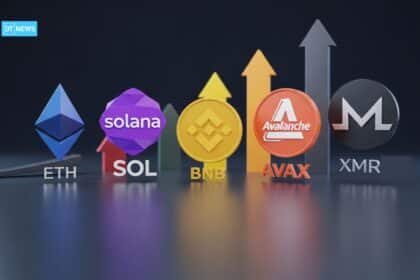TRUMP Token Unlock Nears as $3.62 Resistance Caps Rally
This article was first published on Deythere. A fresh TRUMP token unlock…
Crypto ETF Flows Show $521M Exit From BTC and ETH Funds
This article was first published on Deythere. Crypto ETF flows are signaling a…
XRP Market Performance Surges 38% as Exchange Outflows Spike
This article was first published on Deythere. XRP market performance has been…
Crypto Winter Deepens as Robinhood and Coinbase Show Retail Shift
Crypto winter retail activity is becoming clearer in company earnings rather than…
Apollo to Acquire 9% of MORPHO in Four-Year Deal
This article was first published on Deythere. Apollo Global Management has announced…
Crypto ETF Flows Shift as Bitcoin and Ethereum Dip, Solana and XRP Rise
Institutional money does not move in a straight line, on February 16,…
Top Blockchain Developer Tools 2026 for Building and Scaling
This article was first published on Deythere. The progress of Blockchain development…
Top NFT Marketplaces 2026 Driven by AI, Gaming, Real Assets
Top NFT marketplaces 2026 are changing the way people think about digital…
GENIUS Act vs MiCA Stablecoins: A Two-Tier Market Emerges
The GENIUS Act vs MiCA stablecoins discussion is changing the stablecoin market…
Top Altcoin Picks After a Market Dip: Coins Showing Relative Strength vs BTC
This article was first published on Deythere. The recent crypto slump has…




















































































































